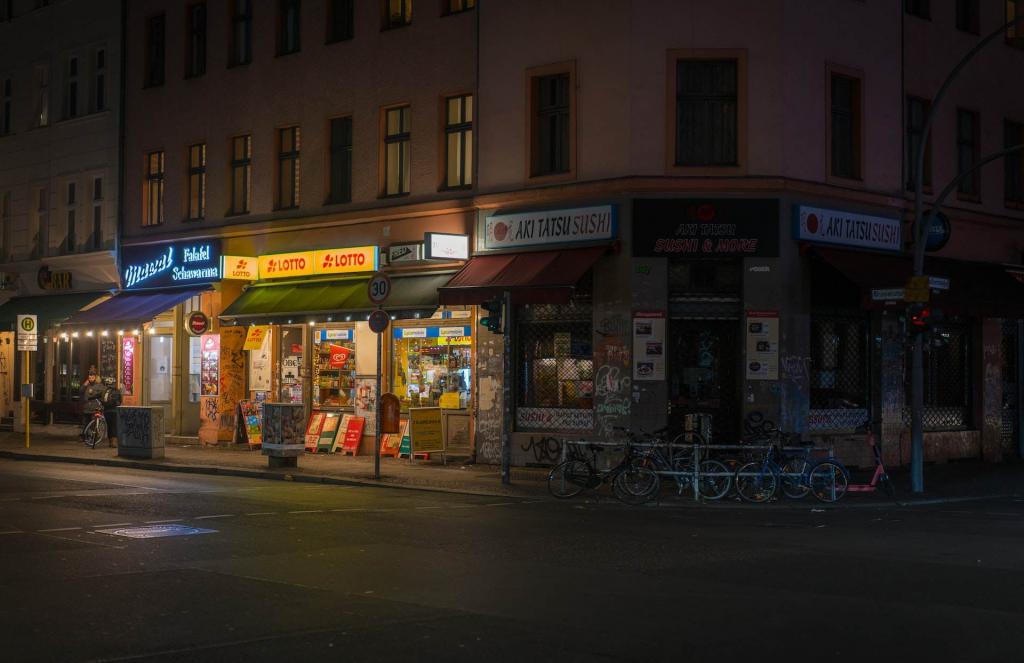Thessaloniki gets ready for its metro launch in November
The underground rapid transit lines have been under construction for almost two decades due to various project delays
 TheMayor.EU logo
TheMayor.EU logo 
The hip district of Kreuzberg is full of small shops and self-employed people , Source: Jonas Tebbe / Unsplash
The money will be targeted to organisations who have seen a 50% rise in energy costs in 2022 compared to 2021
Yesterday, local authorities in Berlin announced they have earmarked 252 million euros as an energy hardship fund to help freelancers and small and medium-sized businesses (SMEs). The programme will provide immediate grants to help people meet their crushing energy bills.
This policy will be a social measure aimed at businesses and the self-employed, mirroring the energy aid scheme for households, announced in early January. Increasing energy costs can jeopardise business liquidity and can be absolutely burdensome for someone who is self-employed or for non-profit organisations.
According to a press statement, 200 million euros for the fund will come from Berlin’s state budget while the remaining 52 million – from the German Federal budget.
There are a couple of prerequisites that would qualify freelancers for the help and in some respects, they could be regarded as quite prohibitive. One of the requirements is an increase in energy costs of around 50% in 2022 compared to 2021.
Furthermore, local officials would need proof that the energy costs exceed 3% of the company’s sales in 2021. Also, applicants will have to show evidence that there is a negative cash flow situation due to energy prices.
The maximum grant is 300,000 euros while any expenses above that could be covered through a one-off subsidy that is supposed to fund 90% of that cost. In order to ensure quick access to the funds, the city will provide an advance payment scheme as soon as the candidate meets the criteria.

The underground rapid transit lines have been under construction for almost two decades due to various project delays

Now you can get your wine in Talence by paying directly in Bitcoin

That’s because the state has to spend money on updating the railway infrastructure rather than subsidizing the cost of the popular pass

Rethinking renewable energy sources for the urban landscape

The examples, compiled by Beyond Fossil Fuels, can inform and inspire communities and entrepreneurs that still feel trepidation at the prospect of energy transition

Now you can get your wine in Talence by paying directly in Bitcoin

The 10th European Conference on Sustainable Cities and Towns (ESCT) sets the stage for stronger cooperation between the EU, national and local level to fast track Europe's transition to climate neutrality.

At least, that’s the promise made by the mayor of Paris, Anne Hidalgo

The underground rapid transit lines have been under construction for almost two decades due to various project delays

At least, that’s the promise made by the mayor of Paris, Anne Hidalgo

Hostal de Pinós is located in the geographical centre of the autonomous region

Despite its church-y name, the district has long been known as the hangout spot for the artsy crowds

Urban dwellers across the EU are having a say in making their surroundings friendlier to people and the environment.

Forests in the EU can help green the European construction industry and bolster a continent-wide push for architectural improvements.

Apply by 10 November and do your part for the transformation of European public spaces

An interview with the Mayor of a Polish city that seeks to reinvent itself

An interview with the newly elected ICLEI President and Mayor of Malmö

A conversation with the Mayor of Lisbon about the spirit and dimensions of innovation present in the Portuguese capital














